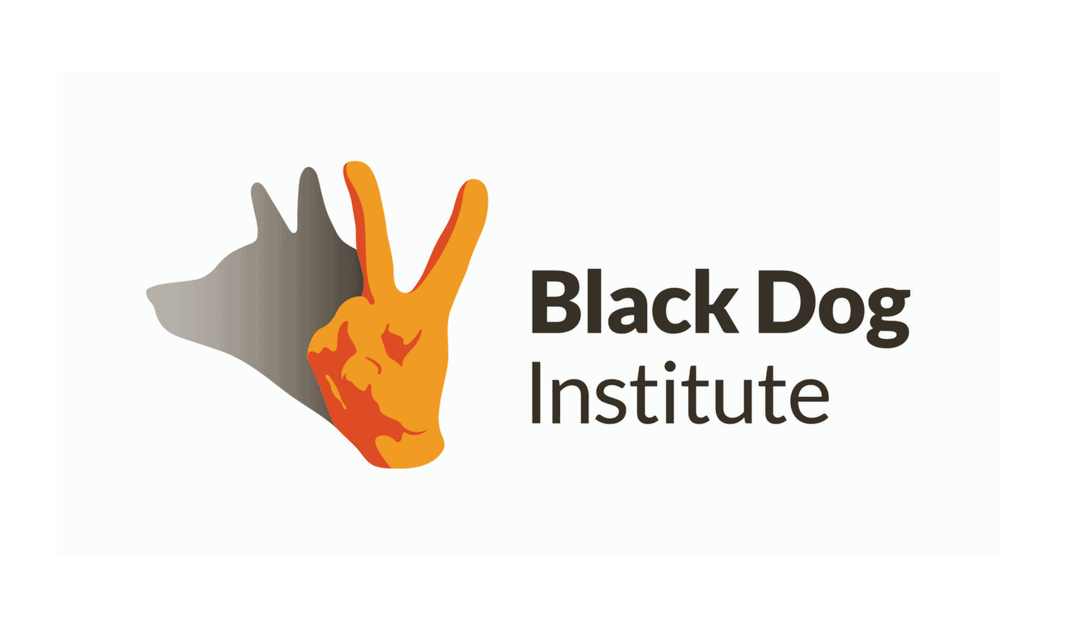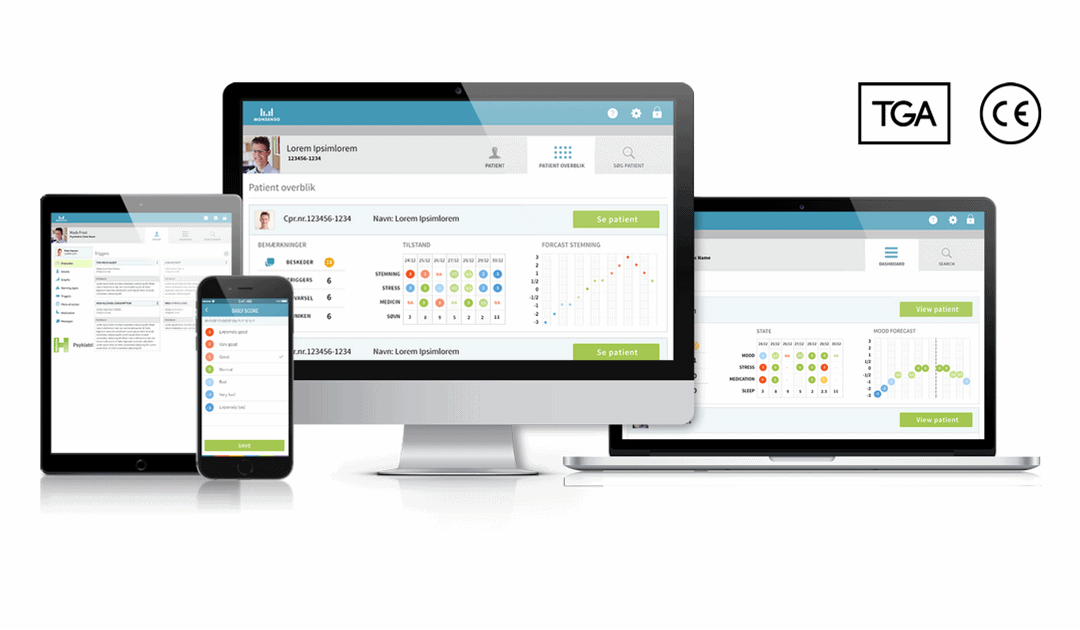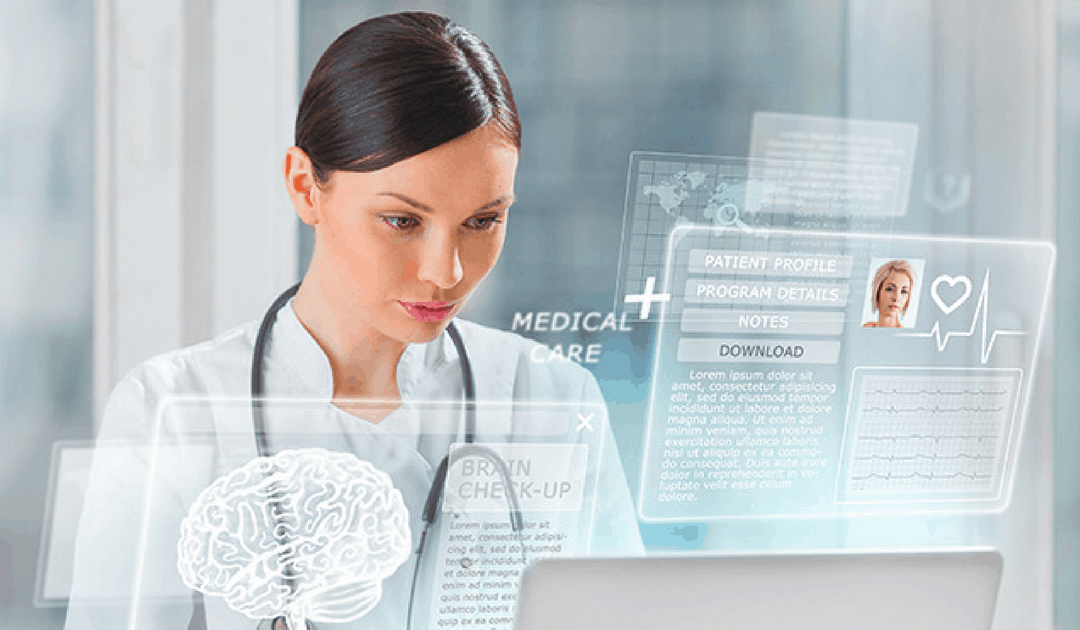
by Thomas Lethenborg | Aug 30, 2016 | News, Press releases
Copenhagen, Denmark – 30 August 2016. Monsenso, the Copenhagen-based technology company developing mHealth solutions for mental illnesses, today announced a partnership with The Black Dog Institute in Australia.
Black Dog Institute is a pioneer in the identification, prevention and treatment of mental illness and the promotion of well-being. The Institute will conduct feasibility studies to determine if the Monsenso mHealth solution can be used to collect much needed data for a number of large-scale mental health trials.
“The mission of Monsenso and that of Black Dog are highly aligned. We both aim to enable better mental health care through innovation and science, therefore this is an exciting moment for both parties” said Thomas Lethenborg, CEO at Monsenso. “Monsenso is looking to build sustainable, long-term partnerships, with the ultimate goal of delivering better care, to more people, and at lower cost.”
As part of the on-going collaboration between Monsenso and the Black Dog Institute, Mads Frost, Chief Product Officer of Monsenso, has been invited to participate as a guest-speaker at the conference “Humans and Machines: A Quest for Better Mental Health” organised by Black Dog.
Helen Christensen, Director of the Black Dog Institute, said the trial would allow them to collect real-time information using a device that most people carry at all times – their Smartphone. “Our focus will be on collecting self-reported daily mood ratings and activity data that may be used to predict changes in mental health conditions over time. Ultimately these sorts of tools can be used to deliver real time assistance to those in distress at the time they most need help. However, like all good research and development projects, our aim is to test the validity of these approaches; their feasibility and the extent that they can provide better health care services. Ultimately, we hope to use these sorts of tools in our national programmes involving youth mental health and suicide prevention.”
The Monsenso mHealth solution for mental illnesses holds a CE mark and a TGA certification and it has been technically and clinically validated in clinical evaluation studies and randomised clinical trials. Furthermore, Monsenso is in the process of obtaining the ISO 13485 and ISO 27001.
For additional information contact:
Jennifer Highland
Marketing and Communications Manager
Monsenso
+45 81 71 7713
highland@monsenso.com
Gayle McNaught
Head of Public Affairs
The Black Dog Institute
g.mcnaught@blackdog.org.au
About The Black Dog Institute
The Black Dog Institute is a not-for-profit organisation which is internationally recognised as a pioneer in the identification, prevention and treatment of mental illnesses, and the promotion of well-being. We are dedicated to improving the lives of people affected by mental illness through the rapid translation of high quality research into improved clinical treatments, increased accessibility to mental health services and delivery of long-term public health solutions. Our unique approach incorporates clinical services with our cutting-edge research, our health professional training and community education programs. We combine expertise in clinical management with innovative research to develop new, and more effective, strategies for people living with mental disorders. For more information visit www.blackdoginstitute.org.au
You can download this article as PDF in English and Danish

by Thomas Lethenborg | Aug 15, 2016 | News, Press releases
Copenhagen, Denmark – 16 August 2016. Monsenso, today announced that its mHealth solution received a Class I medical-device certification, from the Australian Register of Therapeutic Goods Administration (TGA).
The mHealth solution received the TGA certification in cooperation with Emergo, a consultancy company specialising in regulatory compliance for medical devices, with funding from the Danish Market Development Fund.
Thomas Lethenborg, CEO at Monsenso, commented “We are very satisfied that the Monsenso mHealth solution received the TGA certification and is now ready to be launched in the Australian market. Although we already have a customer in Australia, this certification provides us with the means to commercialise the solution nation-wide.”
This certification guarantees that a manufacturer’s product meets the essential requirements stipulated by the Australian Register of Terapeutic Administration.
“Holding the right certifications, and offering a high level of data security is essential for healthcare providers in all markets –including Australia. Therefore, it is important that Monsenso possesses the necessary quality control standards and adequate security measures to succeed world-wide” added Mr. Lethenborg.
The next steps for Monsenso are to obtain the ISO 13485 Certification; the ISO 27001 Data Security Certification; and to become HIPAA and FDA compliant. These certifications will be also obtained with the monetary support granted by the Danish Market Development Fund. You can download this article as PDF in English and Danish.
Note:
As of 23 May 2023, Monsenso does no longer hold the TGA certification.

by Thomas Lethenborg | Aug 9, 2016 | Blog, mHealth
Using apps for mental health was written by Ross Campbell, Chief Underwriter of Research & Development based in Gen Re London.
It was originally published on the Gen Re blog and it is © published with the permission of General Reinsurance AG 2016.
Improved awareness and recognition of mental health problems and their complexity puts pressure on health systems to increase care. This stimulates exploration of the potential value of software applications (apps) run on mobile devices. The ubiquity of smartphones makes them an ideal tool for apps that can help individuals manage mental health.
Apps create long-term patient health data in a way that episodic clinic consultations cannot. They generate a personal health record fundamentally different from a clinical patient record [1]. Doctors have much to gain from the comprehensive and detailed information gathered by this form of continuous monitoring. Insurers can also benefit from the potential of this technology, especially for claims.
Apps for mental health can monitor physiological cues associated with sleep disturbance, anxiety, depression, phobias and psychosis. For example, depression is associated with a fall in activity levels – less exercise, movement and fewer social interactions. Sensors in smartphones can help spot patterns of altered behaviour that may represent the early warning signs of lowered mood.
Some apps for mental health can even help diagnose problems. Others help people track and manage mood using self-assessment techniques augmented by coaching functionality. Online environments are a gateway to support from more specialist clinical resources. The resources allow patients more control of their mental health management while enabling clinicians to monitor and support them remotely.
Some other apps for mental health can also help with treatment by sending reminders about medication or appointments, regardless of the person’s location. And they can provide distraction from cravings or link with social networks at times of stress. This “nudging” is effective at altering behaviour; for example, integrating text messaging in smoking cessation programmes improved six-month cessation rates by 71% compared to the regular treatment [2].
However, work remains to be done before apps can integrate with insurer’s processes. The confidentiality and use of personal data generated and stored by apps is complicated and needs clarification. The accuracy and sufficiency of information is a potential concern while hardware constraints may limit potential. More evaluation of the impact of digital technology is needed in research and clinical practice. [3]
Meanwhile, insurers could engage with emerging providers of software solutions. Services like these will, over a relatively short time horizon, become highly influential in the lives of people living with mental health problems. Pilot schemes that compare current insurance methods while evaluating new ones would take us one big step forward.
Click on the links to learn more about the Monsenso mHealth solution mental health consisting on a smartphone app for individuals, carers and a web portal for clinicians.
To view the original post click on this link: http://www.genre.com/knowledge/blog/can-apps-set-the-mood-for-managing-mental-health-en.html
- Marley, J. and Farooq, S., (2015) Mobile telephone apps in mental health practice: uses, opportunities and challenges, The British Journal of Psychiatry (2015), 39, 288-290, doi: 10.1192/pb.bp.114.050005.
- Whittaker, R. et al Mobile phone based interventions for smoking cessation. Chochran Database Systematic Review. 2012;11. CD006611. Doi:10.1002/14651858.CD006611.pub3.
- Hayes, JF., Maughan, DL., Grant-Peterkin, H. (2016) Promotion of mental health and prevention of mental disorder in the digital age, The British Journal of Psychiatry (2016) 208, 205–207. doi: 10.1192/bjp.bp.114.161067.



